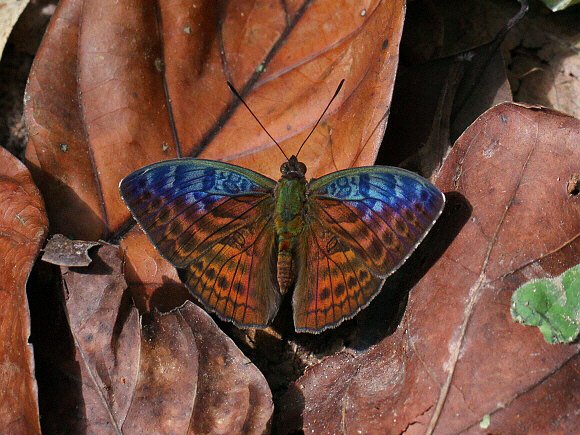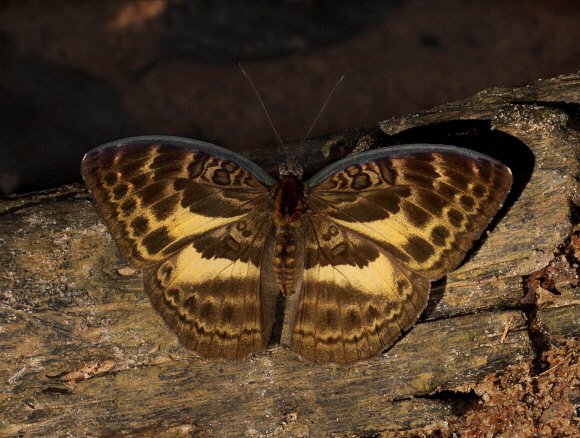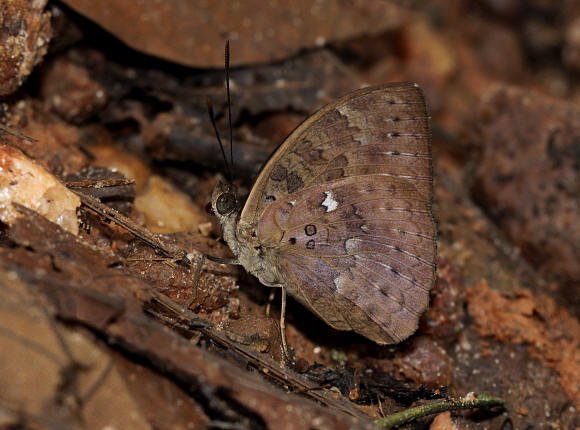
Introduction
There are about 95 Bebearia species, all of which are found in the forests of the Afrotropics.
The males of several Bebearia species have a fritillary-like pattern of dark spots on a brownish or orange ground colour. Several species have an overall metallic blue sheen. In tentyris there is a blue iridescence over the discal cell and costal areas of the forewings, but the remaining areas of the wings reflect a dull copper or reddish hue. The iridescence is only apparent when the insect is basking in direct sunlight.
The females, in common with those of several other Bebearia species, are marked with a Catuna-like pattern in dark brown and cream.
Bebearia tentyris is distributed from Cote d’Ivoire to Cameroon and Congo.

Habitats
This species is found in the drier rainforests, and is quite tolerant of habitat degradation. It is found at altitudes between sea level and about 800m.
Lifecycle
The larval foodplant is Hypselodelphis ( Marantaceae ).
Adult behaviour
Males are commonly seen basking in sunspots on the forest floor, and are strongly attracted to decomposing fruit. They normally hold their wings erect when feeding, but periodically fly up and settle on nearby leaves, where they bask with wings fully outspread.
Females are seen far less frequently and are secretive in behaviour. They are often overlooked because of their similarity to other species.

